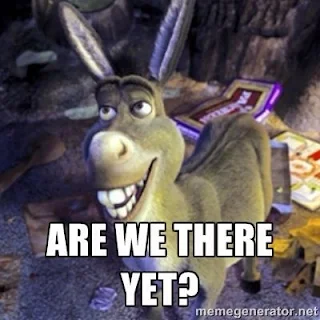Rush (2013)

Friederich Nietzsche identified enduring dichotomies within and amongst us that make our world tick. These two attitudes, both named after Greek Gods, have clashing features. Apollo, son of Zeus, stands for order, logic and reason while Dionysius, the God of Wine, represents chaos, madness and drunkenness. Nietzsche thinks we need both. It emerges from nature itself and can be applied in our day-to-day activities, from art, psychology, ethics to politics.
Apollonian way of doing things can be visualised how a scientist functions with his obsession with precision, discipline and punctuality. The Dionysian effect can be seen in music and art form, which may appear chaotic and not following the rules but nevertheless is music as it is, pleasant to the ears and emotive.
Nietzche saw the fusion of frenzied energy of the Dionysian to be applied constructively inside an Apollonian framework as ideal.
This biopic depiction of the professional rivalry between two F1 racing legends, Niki Lauda and James Hunt brings us to a time when F1 racing meant booze, girls and drug. Even though the movie depicts them as mortal enemies, in real life, they were close friends and had kept in touch for a long time.
James Hunt is the impulsive hard-drinking, the hard-partying late-night bad boy of F1. Lauda, on the other hand, is a fastidious, calculative and disciplined racer who prepares his every move meticulously and goes to bed early.
 A memorable quote in the film goes like this. 'Drivers are revered not because of what they do, driving around in circles but because of their brush with death. The closer they are with death, the more people find them fascinating.' I suppose the same applies to other professions that deal with or hold people's life at the clutch of their hands. This would include people in the medical fraternity or in the mafia business.
A memorable quote in the film goes like this. 'Drivers are revered not because of what they do, driving around in circles but because of their brush with death. The closer they are with death, the more people find them fascinating.' I suppose the same applies to other professions that deal with or hold people's life at the clutch of their hands. This would include people in the medical fraternity or in the mafia business.
This opposing features in the drivers form a compelling narrative for a cliffhanging adrenaline-fueled, rubber-burning suspense at the F1 track set in the early to mid-70s. The excellent direction by Ron Howard makes the experience more enjoyable.
Life would be boring if everyone conforms to a universal set of rules and practises fair play all the way. The Apollonian and Dionysian dichotomy remains a useful way to view art, psychology, society and every other aspect of life.

Friederich Nietzsche identified enduring dichotomies within and amongst us that make our world tick. These two attitudes, both named after Greek Gods, have clashing features. Apollo, son of Zeus, stands for order, logic and reason while Dionysius, the God of Wine, represents chaos, madness and drunkenness. Nietzsche thinks we need both. It emerges from nature itself and can be applied in our day-to-day activities, from art, psychology, ethics to politics.
Apollonian way of doing things can be visualised how a scientist functions with his obsession with precision, discipline and punctuality. The Dionysian effect can be seen in music and art form, which may appear chaotic and not following the rules but nevertheless is music as it is, pleasant to the ears and emotive.
Nietzche saw the fusion of frenzied energy of the Dionysian to be applied constructively inside an Apollonian framework as ideal.
This biopic depiction of the professional rivalry between two F1 racing legends, Niki Lauda and James Hunt brings us to a time when F1 racing meant booze, girls and drug. Even though the movie depicts them as mortal enemies, in real life, they were close friends and had kept in touch for a long time.
James Hunt is the impulsive hard-drinking, the hard-partying late-night bad boy of F1. Lauda, on the other hand, is a fastidious, calculative and disciplined racer who prepares his every move meticulously and goes to bed early.
 A memorable quote in the film goes like this. 'Drivers are revered not because of what they do, driving around in circles but because of their brush with death. The closer they are with death, the more people find them fascinating.' I suppose the same applies to other professions that deal with or hold people's life at the clutch of their hands. This would include people in the medical fraternity or in the mafia business.
A memorable quote in the film goes like this. 'Drivers are revered not because of what they do, driving around in circles but because of their brush with death. The closer they are with death, the more people find them fascinating.' I suppose the same applies to other professions that deal with or hold people's life at the clutch of their hands. This would include people in the medical fraternity or in the mafia business.This opposing features in the drivers form a compelling narrative for a cliffhanging adrenaline-fueled, rubber-burning suspense at the F1 track set in the early to mid-70s. The excellent direction by Ron Howard makes the experience more enjoyable.
Life would be boring if everyone conforms to a universal set of rules and practises fair play all the way. The Apollonian and Dionysian dichotomy remains a useful way to view art, psychology, society and every other aspect of life.















